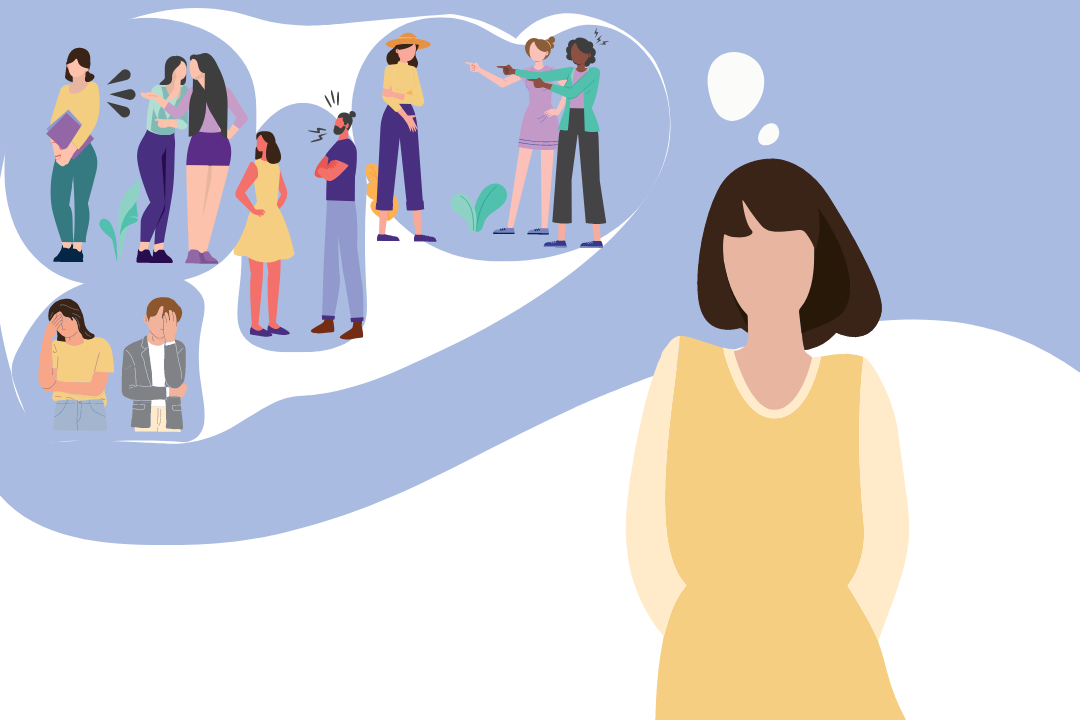Full disclaimer: This is not the first time I’ve tried to write a post on this topic. In fact, it’s not even the second time.To be really honest,I think I’ve lost count. The concept of forgiveness and letting go has baffled me, especially as an adult. For me, forgiveness is a feeling; a cathartic feeling of letting go. However, forgiveness and letting go does not come easily, especially when we are carrying something that goes along the line of deep hurt.
As a child, I was hardwired to say “sorry”. I know I am not alone, because as Indians I feel we are too apologetic. I still hear my mother tell me, “just say sorry and I will drop it”. So, I learned to just say sorry thinking that matters would end. Did they? That’s a question for another day.
There are countless conversations themed on how Indians are more “sorry” than most cultures and how that translates into our work. Even as women, saying sorry, I believe, comes more naturally to us than saying “hey, I believed I was right, which is I did it”. Being apologetic has almost been beaten into us – like a piece of metal hammered into a new shape of ‘constantly being apologetic’ (In this case, it’s the outward appearance of being sorry and saying the word).
This has led me to understand that forgiveness is more than receiving an apology. The factuality of this theory is all too obvious in abusive relationships: they said sorry – so everything is (or must be) okay only for them to repeat the abuse.
But then again, forgiveness does not come from someone saying sorry.
So where does forgiveness come from?
Forgiveness, like I mentioned before, comes from a feeling. How and when do I let go? The clichéd answer is that ‘time heals all wounds’, but remember this: time can also fester wounds.
A theory I toyed with, is that a genuine apology would lead to forgiveness. I, of course, have the emotional and cognitive functioning not to drag on a stale topic. So what’s a genuine apology: Change in behaviour? Change in thought? The tricky part to this is the word “change”.
We want someone to change ‘who they are’ to fit our concept of ‘who they should be’ for us to forgive them. Please note, this is not in reference to abusive relationships. This theory is for more greyed situations like when your partner shows up drunk, makes jokes at your expense, your teammate does not meet deadlines, or worse, that time you overheard your friend bitch about you. Yes, all these are very uncool situations and perhaps they should work on these areas, but the bigger question for any thought or behaviour change is understanding why they did it in the first place.
But here’s something to think about: Is understanding why they did what they did is more important to me or them? Now, even if I showed them the (often cruel) mirror and exposed their ‘why’ – does that mean they are going to effectively change, making their apology seem genuine enough for me to forgive them? Probably not. Any change comes from a person’s instinctive genuine want to change – not a want that they have been coerced into having. Thus, my first theory on change to accept an apology to forgive seems almost redundant.
So, the question still remains how, when and why do I forgive.
The ‘why’ is because you want to. Holding on to the pain genuinely serves no purpose. We hold on to the pain because it acts as a teacher and protector. We are learning something from it and we are shielding ourselves from more pain. The ‘when’ is when you realise you have outgrown the lesson and actively holding on to it is limiting you in your life. It is when you have internalised the learning and without pain can choose better for yourself.
The ‘how’ I use for myself, and my clients is the Ho'oponopono technique. While the history of Ho'oponopono may seem mythical, I feel the very intention of the words actively releases the pain. It acts as a conscious choice of thought and behaviour. In Ho'oponopono you acknowledge that:
You have hurt the person. Remember every action is a reaction to a preceding reaction. No situation or conversation exists in an isolated vacuum. They’re all interrelated. Thus, you can also make choices.
You apologise for the hurt you've caused.
You then mentally forgive them for their pain.
You need to remind yourself you are letting go.
The acknowledgement that I have a role to play in my life (obvious right!), but not so much when I am feeling hurt and am in pain. This is when we tend to feel like we are passive receptors.
The acknowledgement, at least for me, restated a sense of control for me that I could do something about it and do things differently. This felt empowering, and almost gave me the strength to let go. The awareness that I play a role in my life, that I can learn from my past, and I can choose differently for my future allowed me to experience the catharsis of forgiveness and just let go! Even though at times there may be fleeting thoughts of the pain; the intensity of pain has significantly reduced.
Forgiveness is a cathartic experience. It is experienced by everyone differently. However, the defining factor is you – you’re reminding yourself that it is your life, you play a role in it and you have choices.


